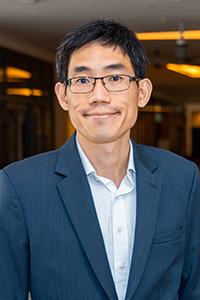PROGRAMME OBJECTIVES
In this age of ubiquitous data, how do we make sense of all this readily accessible but often overwhelming quantitative information that we encounter every day? To systematically extract insights from data? To “reason” with data? We can think of quantitative reasoning as applying a certain set of logic that allows us to work with data. The insights developed through such an application can help us to answer questions that we are invested in, to support or invalidate preconceived hypotheses, and provide evidence to advance our arguments.
Through this journey of reasoning quantitatively, we will illuminate how we can both be critical consumers, as well as actively engage with, this precious resource that is data.
Who Should Attend
High school and pre-university students / undergraduate students from non-statistics/data science major, who are keen to explore quantitative reasoning skills and to understand how to reason with data.
Pre-Requisites
There are no course specific pre-requisites.
Mode of Delivery
Blended Online Programme: 23 hours of hybrid online programme, including asynchronous lessons, tutorials and a final project presentation.
On-campus Programme: 15 hours of face-to-face seminars and assessment.
Mode of Assessment
Students will be assessed via a variety of assignments and assessments:
- Continuous Assessment for blended online programme: Quiz
- Group Project
COURSE INSTRUCTORS
Below are the faculty members who have developed the course, and taught the programme in the past (names are arranged in alphabetical order):
 |
Dr Edmund Low
NUS College
National University of Singapore
Dr Edmund Low is a senior lecturer with the NUS College at the National University of Singapore. He has more than 14 years of academic and professional experience in the use of data-driven tools to answer questions in public health and the environment. His past projects include the use of programming and visual libraries to develop simulation models for automating workflow processes, and the setting up of remote environmental sensing systems to automate real-time continuous monitoring, for early incident warning. He currently heads the quantitative reasoning domain, and is also director of the Quantitative Reasoning Centre, at USP. As an educator, Edmund has received both the USP Teaching Excellence Award, as well as the NUS Annual Teaching Excellence Award. Edmund holds a PhD in Environmental Engineering from Yale University.
|
CERTIFICATE OF COMPLETION
Successful participants who fulfill all program requirements, including meeting the minimum attendance and passing the assessment, will be awarded an e-Certificate of Completion and Assessment Report issued by NUS SCALE.
Certificate of Completion
A sample of the Certificate of Completion
Assessment Report.
A sample of the Assessment Report.
COMMENDATION LETTER
Participants from the project team with the highest score for the group project will also receive a commendation letter.
Commendation Letter
A sample of the Commendation Letter.
SPEAK TO US
For enquiries, contact us through the following forms:
-
For individuals interested in NUS SCALE Youth programmes, please
click here to enquire.
-
For schools/companies interested in customised and/or group bookings, please
click here.
|